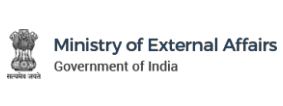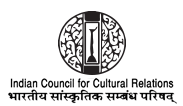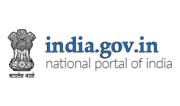New York
Official Spokesperson (Shri Vishnu Prakash): A very good afternoon to all of you and welcome. You have already seen and analysed, some of you have already reported upon, the address of Prime Minister Dr. Manmohan Singh at UNGA today. You are also aware that the Prime Minister has had two bilateral meetings, with the Prime Minister of Nepal and also with the President of the newest member of the comity of nations South Sudan. Foreign Secretary would like to brief you about the meetings, and also give you a perspective on Prime Minister’s address at UNGA.
Foreign Secretary (Shri Ranjan Mathai): Thank you.
I am sure all of you have the full text of the Prime Minister’s speech. This was very well received. In it the Prime Minister who is addressing the UNGA for the first time since 2008 has in fact spelt out his analysis of the international situation as it is today and his vision on the kinds of areas in which global cooperation is called for. I would draw attention to two or three elements of it.
Prime Minister refers very clearly to the fact that the world economic crisis, which in 2008 he referred to when he was here, there was a time we thought we were out of the woods but it seems there is still need for intensive cooperation among all countries in the world to tackle this continued crisis. In this context he has also mentioned the continued feeling that the Bretton Woods institutions as they are, do require examination as together they are suitable for dealing with the current international realities.
The Prime Minister made a categorical reference again to our support for Palestine. He addressed that issue very clearly. He also referred to, he gave an analysis of the current transition which is taking place in many countries across the world, the tensions and turmoil. I draw attention to one particular statement in the speech, in which he says that societies cannot be reordered from outside. In fact the specific language is, “Societies cannot be reordered from outside through military force. People in all countries have a right to choose their own destiny and decide their own future.”
In addition I would mention that he referred to the need for the United Nations Security Council reform and I quote, “The reform and expansion of the Security Council are essential if it is to reflect contemporary reality. Such an outcome will enhance the Council’s credibility and effectiveness in dealing with global issues. Early reform of the Security Council must be pursued with renewed vigour and urgently enacted.” This particular line was greeted with applause on the floor.
There was also a reference to our own region South Asia and I draw attention to that also. In that the Prime Minister, after referring to the fight against terrorism, said, “In South Asia there are encouraging signs of cooperation in the area of security as exemplified in India’s cooperation with Bangladesh. Such cooperation is adding to the security of both our countries.” That is as much as I would like to say on the speech itself. I am sure all of you would have seen it and begun your own analyses. I will now move to the bilaterals.
Prime Minister met Prime Minister Bhattarai of Nepal this morning. External Affairs Minister was present. He noted that the Nepalese leader knew India well as he had studied in India in Chandigarh and also in Delhi. There was an exchange of views on bilateral relations and both emphasised that the ties between the two nations were very close and based on centuries old civilisational links. They referred to the tradition of friendship and cooperation and it was felt that steps should be taken to advance particularly the economic cooperation and other elements in our bilateral agenda.
The Nepalese Prime Minister explained the current developments in Nepal and the priorities of his Government, particularly to complete the peace process and the formation of the Constitution. Our Prime Minister wished the Nepalese Government success in these endeavours. PM also told the Nepalese Prime Minister that we were awaiting his visit which has been agreed to and the dates are being finalised.
PM later met President Salva Kiir of South Sudan. External Affairs Minister and the South Sudan Foreign Minister were both present at that meeting. PM began by again conveying his congratulations to the leader of the new State and the manner in which it had handled its emergence on to the world stage. The President conveyed his thanks to PM and recalled with particular pleasure India’s presence at the celebrations of South Sudan’s Independence where, as you may recall, India was represented by our Vice-President. Minister in President Salva Kiir’s office, Madam Cook, had visited India a few months ago.
President Kiir referred to the priorities and the needs of South Sudan which he described as being very great. But he drew particular attention to the need for assistance in areas such as medical facilities, agriculture, irrigation, education, infrastructure and energy. He suggested that India could provide assistance in this regard. And PM responded with the assurance that India would extend all assistance possible, particularly for capacity-building and human resource development in these areas.
President Kiir also referred to the scope for development of new railway lines to link South Sudan with the rest of the railway network in Africa and also access to the sea. He also spoke of the importance of Indian participation in the development of oil resources, hydrocarbon resources of South Sudan. It was then felt that the discussion should be followed up through an exchange of visits to assess the scope for Indian expertise participating in the development of South Sudan, particularly in fields like medicine, agriculture, railways, infrastructure and then to draw up a plan of action. The two Foreign Ministers have been charged with taking this forward.
PM invited President Kiir to visit India, and the President said he would be happy take up the invitation as soon as the immediate priority of setting up the political institutions of the new country was completed.
After these two meetings, I would also like to mention that EAM had a separate meeting with the UK Foreign Secretary as he is called, the Foreign Minister of UK. The two Foreign Ministers discussed bilateral relations in the field particularly of economic affairs, trade, education, and also there was a reference to defence. The two leaders exchanged views on matters before the Security Council, in particular Libya, Syria and the reform of the Security Council. Mr. Hague took the opportunity to reiterate UK’s support to India for its permanent membership in an expanded Security Council. The two leaders also discussed issues before the forthcoming Commonwealth Summit which is to be held in Perth at the end of October.
Thank you.
Question: Sir, I was wondering if you know who all did the leader of South Sudan meet other than the Indian Prime Minister in terms of importance.
Foreign Secretary: I do not have a read-out on that but what I do know is that while we were waiting to receive him - our Prime Minister had just finished his address and come out and finished one meeting and gone to another room - it was remarked by the people handling protocol that the South Sudan Prime Minister had been very active in moving around and he had met a very large number of leaders. I happened to overhear that. But no, I did not check who others he met.
Question: You have pointed out this line in the speech, “Societies cannot be reordered from outside through military force”. Would that also, therefore, enlarge also to Libya and Syria where India has a different viewpoint in the UN Security Council compared to say countries like the United States? Secondly, is there anything more that can you tell us about the upcoming meeting with Secretary Clinton on Monday? Just any indication of the agenda for that meeting?
Foreign Secretary: First of all, I think the reference was not intended specifically to refer to any one situation, but it was a generalized response to a trend we are seeing in which, it started perhaps with Libya where a particular situation in the way it was developing, the UN Security Council did pass a Resolution and then we ended up with a campaign in which one side was supported. I think the idea was just to draw attention to the established principle of noninterference in the internal affairs of other countries; and that the role of the international community is to be as helpful as it can to assist countries in the stage of transition but form outside; that the actual political changes within a country have to be led by that country itself; and it is the role of the international community, perhaps the regional organizations taking the lead and the UN also to assist in this process. I think that was the intention.
Question: Is there any indication of the agenda for the meeting with Secretary Clinton?
Foreign Secretary: It will be a review of bilateral relations and also where we go forward. I am happy you raise this. We have had a number of interactions. The two Foreign Ministers already met in the context of the New Silk Road Initiative of Secretary Clinton of the United States with reference to Afghanistan and the regional cooperation in the context of Afghanistan. We have also participated in a meeting, but at officials’ level, on a US-led initiative for a Global Counterterrorism Forum. But we will be looking at all elements in our bilateral relations including the economic ties. There has been a very good meeting of the CEOs Forum, of which you are aware, and there have been some very useful recommendations which have emerged out of that. So, I think the two Foreign Ministers would take an opportunity to look at what other steps we now need to take to advance our commercial and economic relations.
Question: The reference of Prime Minister to external intervention in the sovereign nations, does it have any message to the United States of America which made an unwarranted comment on Anna Hazare movement in India? That was an unwarranted comment by the United States of America in the internal affairs of India. So, does India give a message that you need not interfere in other countries’ affairs?
Foreign Secretary: I think the Prime Minister’s speech and his remarks were intended to deal with the international situation as it is today and in terms of the kind of issues which the United Nations is tackling. I do not think any other inference would be correct. Even if you look at the remark that you are referring to, what did they say? They said they count on India. Maybe they count correctly. That is all I can say.
Question: Now on the Palestine issue and various other issues there is a slight slant in which we do not go with the United States of America. But do you expect any reaction from their side?
Foreign Secretary: I have just mentioned that we are also participating very closely with the United States in certain initiatives particularly the Afghan Silk Route Initiative and also the counterterrorism initiative which they have taken. We certainly will continue our dialogue on all issues. I do not think there is any response which we are anticipating.
Question: Can we put it like this, the Prime Minister intends to say that India will remain a friend and not an ally of America?
Foreign Secretary: That is your way of putting it.
Question: Foreign Secretary, South Sudan is a country that recognized the Transnational Government of Tamil Eelam, and TGTE also recognized South Sudan. Now that the Tamil Eelam has become a big subject in South India, especially the Tamil Nadu Government has passed a Resolution firmly condemning what is going on in Sri Lanka, was there any reference to the first country that became a TGTE in the bilateral discussion?
Foreign Secretary: No, there was no reference whatsoever to this subject.
Question: Sir, in the very beginning of his speech the Prime Minister expressed his concern about the negative impact of the globalisation. …(Unclear)… What do you think is the reason for or how do you look at this concern about the fallout of globalisation?
Foreign Secretary: I would not like to interpret what the PM has said, but I think in the speech itself he has mentioned particularly the issue of food security. I think, if you look at the speech in its entirety, it is clear that there are elements of the globalization as we understand it today which have begun to have an impact on food security. Similarly in the field of energy security, there are elements where you can see that the pace at which globalization is going on has implications for particularly the developing countries and their abilities to access food and energy. I think those are two areas where you see it. But he is also mentioning, if you see in the reference to the world economic crisis, the capacity for contagion in one region to spread across the globe very quickly. And he is just drawing attention, as you know his credentials as an economist are very well respected, to the possibilities that we need to build into our international system as we know it today, some elements of protection where these contagions cannot spread very easily.
Question: The globalization has brought a lot of investment to our country but that is not properly gathered. That is why issues like …(Unclear)… That also may be a concern for him. …(Unclear)…
Foreign Secretary: I personally see it in the international context, not specifically related only to India. I think it is a reference on behalf of the developing world.
Question: In the bilateral meeting with Nepalese Prime Minister, did our Prime Minister refer to the issue of the rehabilitation of the Maoist army in the Nepalese Army? …(Unclear)… to our domestic Maoist issues also?
Foreign Secretary: There was no reference to India. But, as I mentioned, the Prime Minister of Nepal did speak about the process, it is called a peace process I do not know why. And he explained those moves to create a new consensus on how to move forward there and the Prime Minister wished him well. I think there was no other specific reference.
Official Spokesperson: Thank you very much.







